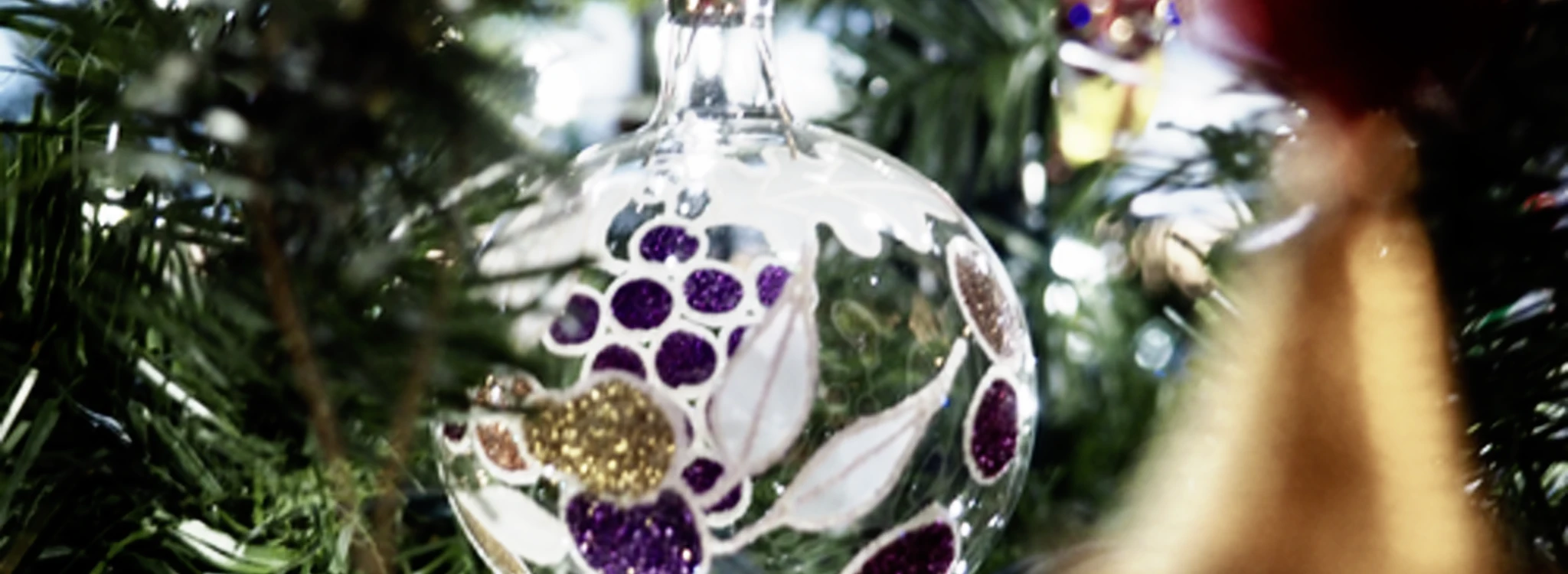Four Hymns of Christmas: Nunc Dimittis
This post is part of the series “Four Hymns of Christmas”
-
Four Hymns of Christmas: Magnificat
-
Four Hymns of Christmas: Benedictus
-
Four Hymns of Christmas: Gloria In Excelsis Deo
-
Four Hymns of Christmas: Nunc Dimittis 👈 you are here
Sometimes I wonder if I’ve ever read the Bible before.
Every time I sit down to read a famous passage, or even just one I’ve read before, new things jump out at me that I’ve never considered. The deep richness of Scripture remains unfathomable no matter how many times you dive in.
Simeon’s presence in the temple in Jerusalem is not coincidence. Unlike Anna, he doesn’t spend all his time there. No, “he came in the Spirit into the temple” just in time to meet Mary and Joseph bringing Jesus to dedicate Him to God as their firstborn (Luke 2:27).
Hold on, say that again? The Spirit? Like, the Holy Spirit? The one sent to us as a counselor and comforter in Acts 2, more than thirty years later?
Yes, Luke tells us, “the Holy Spirit was upon him” (Luke 2:25). Not only that, but the Spirit had informed him “that he would not see death before he had seen the Lord’s Christ” (Luke 2:26).
I know the Holy Spirit is eternal, one person of the Trinity. But we so often think of Him as kind of showing up on the scene in the form of “divided tongues as of fire” resting on the disciples on Pentecost (Acts 2:1–4) and only being active from there on out. Well, in case you forgot (Luke reminds us), He is active throughout history, including right here at the dedication of God the Son to the service of God the Father.
Lots of Trinity here in these verses.
Let’s go back to that promise, though. It’s a heck of a promise. “You, Simeon, will not see death—you will not die—before you see the Christ.”
“Wait, the what?”
“The—oh, you speak Hebrew. Sorry, the Messiah1. You will see the Messiah of God before you die.”
[Simeon faints.]
Other people have heard that promise, or at least one like it. Jesus says to His disciples in Luke 9:27, “there are some standing here who will not taste death until they see the kingdom of God.” The resolutions are even similar! Three disciples are with Jesus two verses later when He is transfigured and has that conversation with Moses and Elijah. Just as Simeon is here in the temple when Jesus is revealed.
In an epic story full of miraculous moments, the most important story in eternity, this scene, this song, Simeon’s song, is one of the high points. Father, Son, Spirit, all together with Mary and Joseph… and Simeon.
The Nunc Dimittis
Before you begin, go read the Nunc Dimittis in your favorite Bible, or just click here if you prefer: Luke 2:29–32. Then come back; we’ll be right here.
“Lord, now you are letting your servant depart in peace, according to your word,” rejoices Simeon.
Simeon’s song has the same theme as the first three: the accomplishment of salvation. Like Mary, Zechariah, and the angels, he speaks of it having already occurred, even though it is in his future. If you think of all four hymns together, they tell one story:
[Mary:] My spirit rejoices in God my Savior
[Zechariah:] [The Lord] has raised up a horn of salvation for us
[The angel of the Lord:] Unto you is born this day in the city of David a Savior, who is Christ the Lord
[Simeon:] My eyes have seen your salvation
Simeon pushes on the angels’ tidings of peace for “those with whom [God] is pleased.” A Jewish audience—these are all Jewish audiences—would naturally believe that salvation is for the Jews. Only the Jews. They are, after all, God’s chosen people, and this is an old, old promise for them.
But here’s Simeon, walking in the Holy Spirit more than thirty years “early,” saying crazy things about how the Lord’s Messiah will somehow be “a light for revelation to the Gentiles” (Luke 2:32). Not until decades later, after Paul has his transformative encounter with the risen Christ on the road to Damascus to kill some Christians (Acts 9), and Peter has his vision of the food from Heaven and visits Cornelius the Roman soldier (Acts 10), does the world begin to understand what Simeon sees in this moment. No wonder Mary and Joseph “marveled” (Luke 2:33).
(By the way, have you noticed that Mary and Joseph seem to maintain this state of awe throughout this entire process? They never get sick of these tidings of God; never tired of the miracles; never just want to go home and sleep. They marvel, they wonder, they treasure; they set an example for us as we experience God’s hand in our lives as well.)
Also like the angels, Simeon has a prophecy to go with his hymn. His words are ominous, about people’s rises and falls, about opposition and swords, and about the revelation of innermost thoughts. If you’re familiar with the entire story of Jesus, each word from Simeon recalls a different event.
Falling and rising reminds us that “the first will be last, and the last will be first” (Matthew 20:26). The sword that will pierce Mary’s soul reminds us of the lance that pierced Jesus’s side as He hung on the cross (John 19:34). The revelation of innermost thoughts reminds us of those to whom Jesus will say, “Because you did it to the least of these my brothers, you did it to me” (and of those to whom He will say, “Because you didn’t do it to one of the least of these, you didn’t do it to me.”) (Matthew 25:40,45)2
It’s fitting, as we finish our walk through the hymn of Advent toward Christmas, that our last song has this note of finality. As Mary and Zechariah and the angels heralded His birth, so Simeon looks forward with joy to the thing for which He was born: His death for our salvation.
And with that, he brings us to Christmas.
This post is part of the series “Four Hymns of Christmas”
-
Four Hymns of Christmas: Magnificat
-
Four Hymns of Christmas: Benedictus
-
Four Hymns of Christmas: Gloria In Excelsis Deo
-
Four Hymns of Christmas: Nunc Dimittis 👈 you are here




